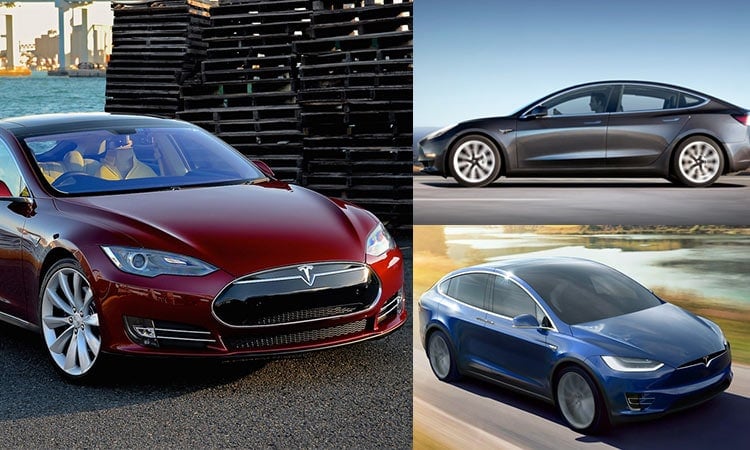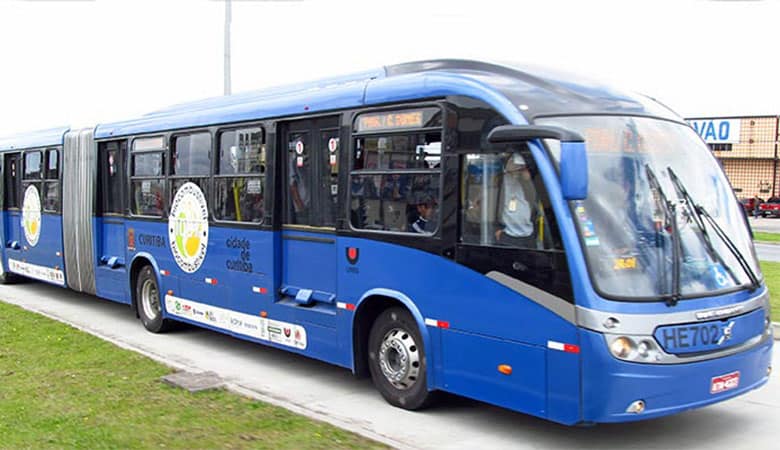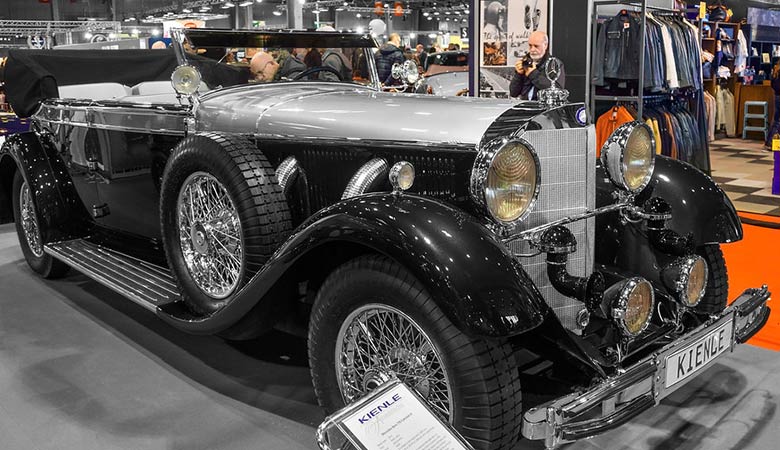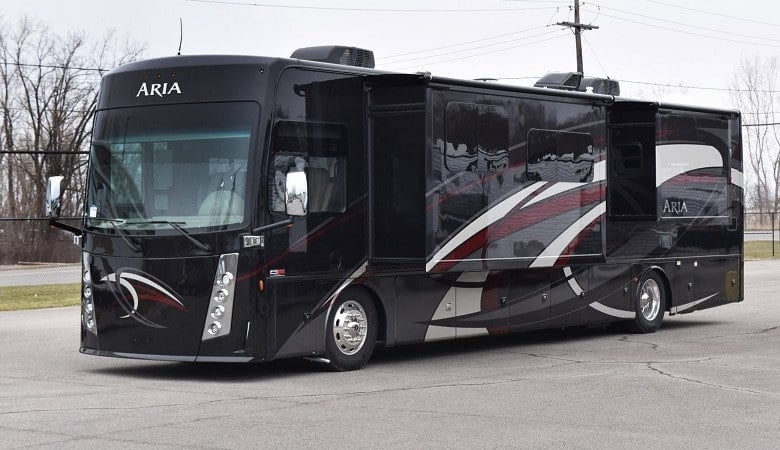Whether a heavier car is safer than a lighter car has been a serious debate among car owners for a long time.
So, which is it? Is a heavier car safer or does the lighter car take home the price?
Heavier vehicles are known to be safer than lighter cars during car crashes. Heavy and large vehicles often times have a longer distance from the front to the occupant(s), thus providing better protection in frontal crashes.
On top of that, when a heavier vehicles crashes with a lighter vehicle, the people inside the heavier vehicle will be subjected to less force since their vehicle will continue moving forward while the lighter vehicle will move backwards.
Safety Advantages of Heavier Cars Over Lighter Ones
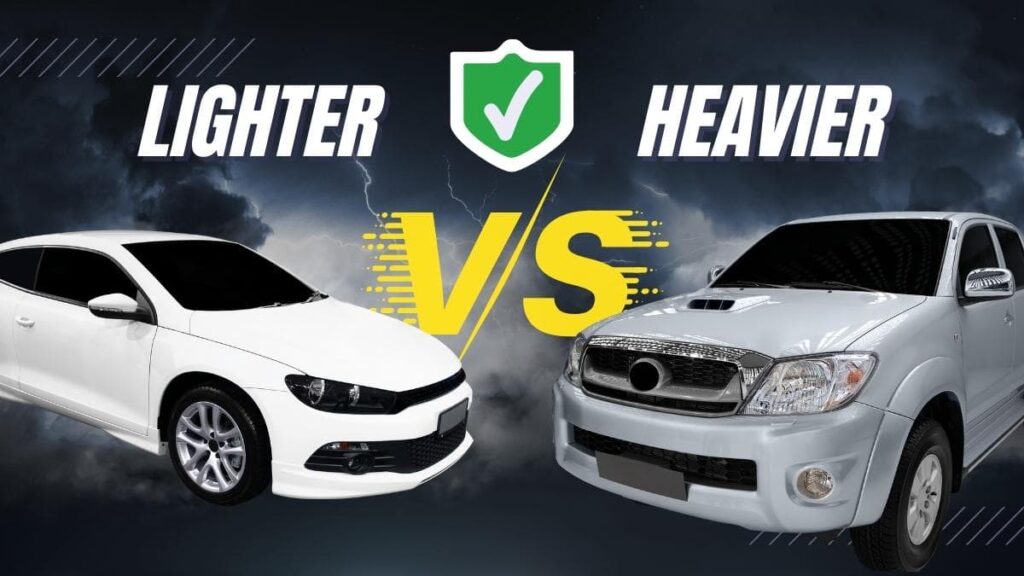
Regardless of size or type, car manufacturers try to make cars safer. Therefore, you can drive a smaller, more compact car and yet be safe.
However, while weighing the advantages and disadvantages of heavier cars, the former is more prevalent. Below are some of the advantages of heavier cars when compared to lighter cars.
1. There is less impact in a head-on collision
The lighter car will always take more of a hit when two vehicles of different sizes collide. This is due to the fact that an object’s force increases with size.
The object’s size is quite important, but other elements also come into play, such as the speed and road surface resistance.
The heavier object will transfer its energy to anything it collides with in a collision. As a result, the lighter vehicle will absorb the energy and have a more significant harmful impact.
It follows from basic physics that an item with a heavier mass moving at a certain speed will exert more force than a lighter mass.
2. Safer in a frontal crashes
The distance from the front bumper to the occupants is longer in heavier vehicles such as most SUVs, pickup trucks, and crossovers.
This means that if something hits the occupants up front, it will require a greater force or a long time before being hurt.
You will enjoy it more in a larger compartment in an SUV or truck. When considering the advantages and disadvantages of heavier cars, this is one crucial factor to take into account.
3. Occupants in larger cars are less likely to be injured

People in larger cars are less likely to sustain injuries in crashes than those in smaller or more compact vehicles.
This has been shown in car crash tests where the vehicle’s mass shows how poorly lighter vehicles are to protect the occupants during crashes compared to larger vehicles.
Furthermore, during car crash investigations, it’s been found that regardless of whether they were in a head-on collision or collided with an object, the drivers of smaller automobiles suffered severe injuries, while those in larger automobiles suffered far less serious injuries.
4. There is more wiggle space in case of a crash
Space is a key factor when weighing the benefits and drawbacks of larger cars. In the event of a rollover or crash, you will have more space to maneuver the heavier and larger the car is.
There are many chances in a collision that you’ll strike the inside of the vehicle. Now, such chances will be reduced in spacious vehicles.
5. Heavier vehicles do better in car crash tests
Car crash tests may not simply determine vehicle safety and quality. But the figures speak for themselves.
Heavier cars performed better in collision testing conducted by the Insurance Institute for Highway Safety (IIHS) than their lighter rivals.
This demonstrates that weight plays a significant role in a vehicle’s high safety rating. Because of this, IIHS advises parents to purchase heavier automobiles for their children rather than lighter ones.
6. Heavier cars are roomier and more comfortable
You might want to spend money on a heavy and large vehicle, particularly if your family is growing, so you can also benefit from roomy cargo space. You will appreciate this benefit if you have other strollers or bags of goods to carry.
Additionally, you will be able to take advantage of the additional seating, especially if you have young children because kids make friends and you might be able to pick them up along the route. While comfortable, compact cars cannot match the convenience that a heavier car may offer.
7. You will feel more planted on the road as you drive
Since they are heavier, you will feel their solidness better when driving on the road. You will still feel planted even if you’re driving at top speed. Below are some of the factors that ensure your car is well planted:
- All-wheel drive system
- Large, better-performing tires with good grips
- Great weight distribution
- Good suspension travel
- Tire width, pressure, and quality
- Well-maintained bearings and bushes
It goes beyond simply feeling rooted but is crucial since it influences your handling. When you accelerate out of a corner in a car with proportional weight distribution, you can steer with ease.
Do Heavier Cars Cost More Than Lighter Cars?
Usually, the cheapest vehicle a car manufacturer makes is also the lightest. You probably already know the straightforward rationale: lighter cars are more cost-effective to construct since they require fewer raw materials. Of course, light vehicles have drawbacks. Although they might not be as expensive up front, heavier cars are designed for a reason.
Many old model cars weigh a lot, but that is because we have subsequently moved to use much lighter materials to construct cars
However, a heavier car will benefit more than its weight on the new car market. Back to the materials used in the car’s construction, this is the main factor in why heavier cars are often thought to be safer.
Although a large modern car lacks a steel bumper, it will still be heavier due to different parts, such as safety features and electronics, which are absent from light, inexpensive vehicles. Naturally, added features may require more time in the shop, which is why a bumper-to-bumper warranty might be beneficial.

